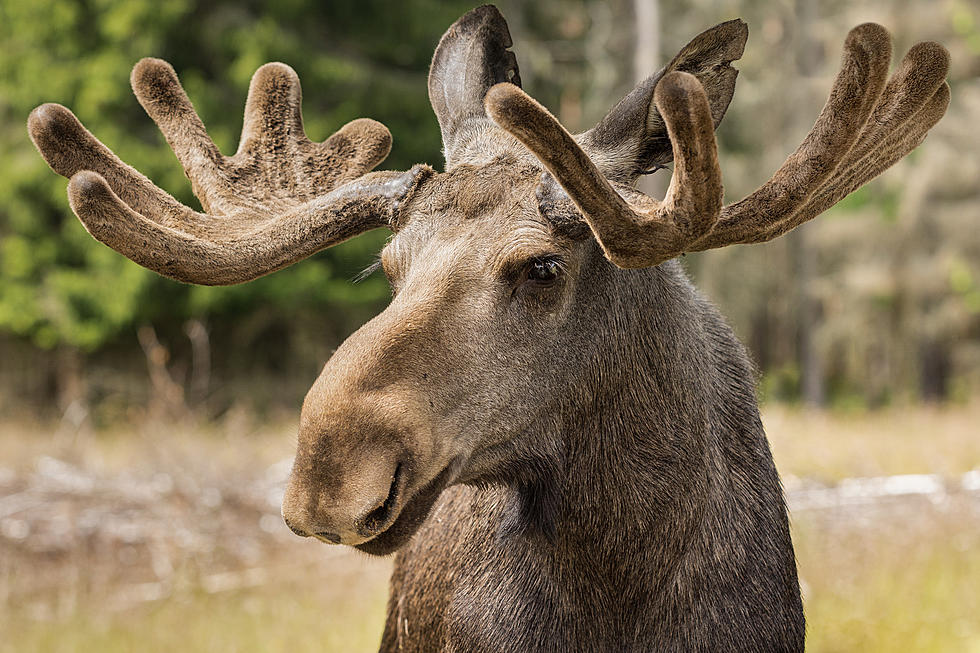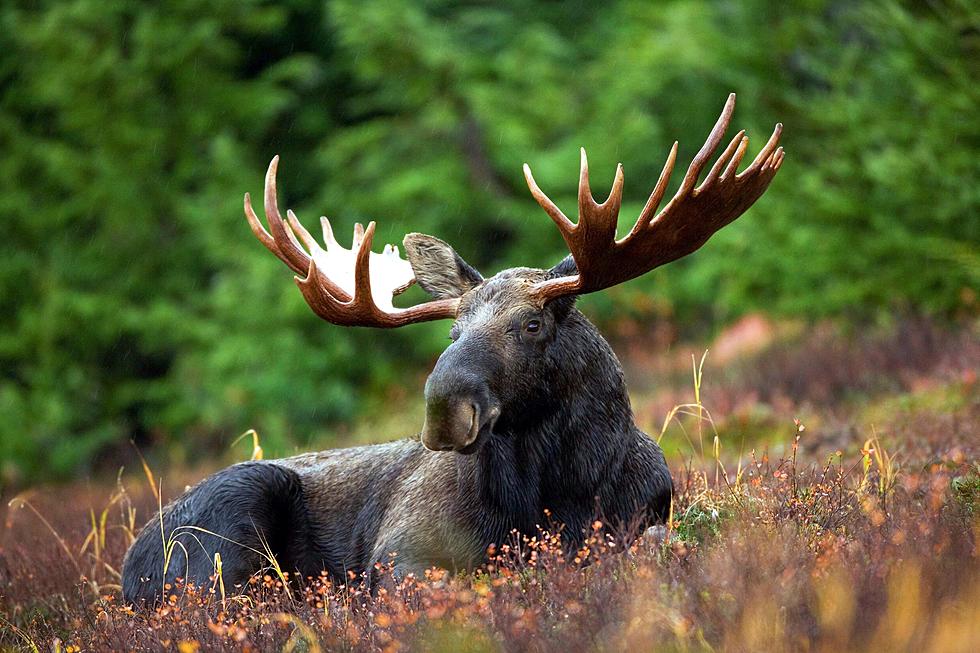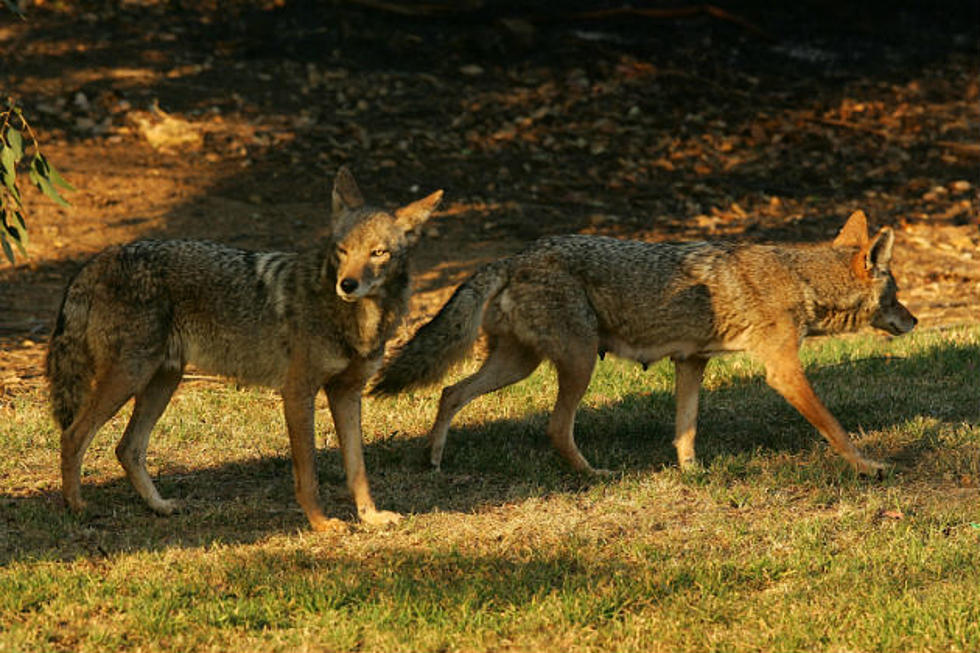
How Maine’s Adaptive Unit Moose Hunt Works + How To Enter
Maine moose biologists are looking to cull the moose herd in an area of the state hit hard by winter tick. This special hunt could lead to more moose permits in the future.
The Maine Department of Inland Fisheries and Wildlife is now accepting applications for the 2021 Moose Permit Lottery. When filling out the application this year, hunters can choose to take part in the Adaptive Unit Hunt. The special hunt helps biologists determine if moose density reduction can break or lessen winter tick impacts to moose in Maine.
Winter tick is a specific species of tick, which has been found to not be an invasive species in Maine. Unlike dog or deer ticks, winter ticks have a one year lifecycle. They thrive on moose, which can host anywhere between 50,000 and 90,000 ticks. The ticks consume about one milliliter of blood, which when multiplied by tens of thousands, leads to gallons and gallons of blood loss. The blood loss causes moose calves to quickly become anemic, and cow moose tend to suffer from various forms of reproductive issues.
To combat winter tick, a multi-phase moose study began in 2019, and is expected to continue to 2024. Phase one began with surveying the moose population in a 2,000 square mile section in wildlife management zone 4. The study area has been divided into two similarly sized sections. 30 moose calves in each section were fitted with GPS collars to monitor survival rates.
Now in phase two, MDIFW is proposing to allow increased hunting in the study area in fall 2021 to reduce the moose population density. In the eastern half of zone 4, and all other wildlife districts open to moose hunting, permits will stay at normal levels. All the moose harvested in the study area will be analyzed by biologists.
Data points biologists will collect include:
- Canine teeth (for aging)
- Antler spreads
- Winter tick counts
- Corpora lutea
- Carcass weights
MDIFW says "If we do indeed find that an increased harvest leads to lower winter tick levels and healthier moose, that information may allow for increased permit allocations in other areas of the state." According to a recent live stream event with Maine's head Moose Biologist, Lee Kantar, between 2014 and 2020, 83% of collared moose being studied were dying of winter tick related illness.
High population density within the moose herd means more ticks, which leads to a myriad of issues, especially among newborn calves. Winter tick illness can lead to calfs being born underweight, and may not live more than three weeks. Many calves struggle to survive their first Maine winter. In some areas, calf survival in their first year is less than 50%. Reproductive issues have also been observed in high winter tick impacted areas. Yearling cows are being found in poor condition, and unable to breed until later in life. When they are able to breed, they're found to be less likely to produce twin calfs.
Lower moose population density has been found to lessen winter tick impacts. With less ticks, odds are higher that a calf will be born healthy and able to survive their first three weeks of life. In some parts of the state with low population density, 85% of calves survive their first year of life. This leads to healthy yearlings that reproduce earlier in age, and higher chances of birthing twin calfs.
If a hunter wishes to participate in the Adaptive Unit Hunt, entering is easy. When you fill out the moose lottery application, simply check "yes" when prompted "Are you interested in receiving a moose permit for this WMD 4A Adaptive Unit Hunt?" 550 cow permits will be issued for the hunt, with special season dates. Hunters are not able to choose a particular hunting week. The drawing for Adaptive Unit Hunt permits will be held separately from traditional moose permits. So if an applicant does not receive a traditional permit, only then will they be put into the Adaptive Unit lottery. If an applicant receives an Adaptive Unit permit, they will lose their bonus points.
Hunters selected for these special permits will be required to attend an in-person or virtual, one-hour moose pre-hunt briefing. Hunters will be provided with Adaptive Hunt Program details, expectations, maps, ovary removal instruction, and bull/cow/calf differentiation and identification, in addition to proper care of meat. Because the study area is within the North Maine Woods, hunters must pay the use fees at entry checkpoints. Hunters will be required to stop, register moose, and provide biological data at designated field check stations within the adaptive hunt area at key entry and exit points. Hunters that fail to collect canine teeth and ovaries out of the field will be asked to return to kill site and retrieve them.
You have until, May 13 to apply. Applications are only being accepted online. Once completed, you'll receive a confirmation email indicating that you successfully entered. The moose lottery drawing will be held June 12.
Can The Average Person Outrun These Maine Creatures?
10 Most Dangerous Critters in Maine
More From WQCB Brewer Maine









